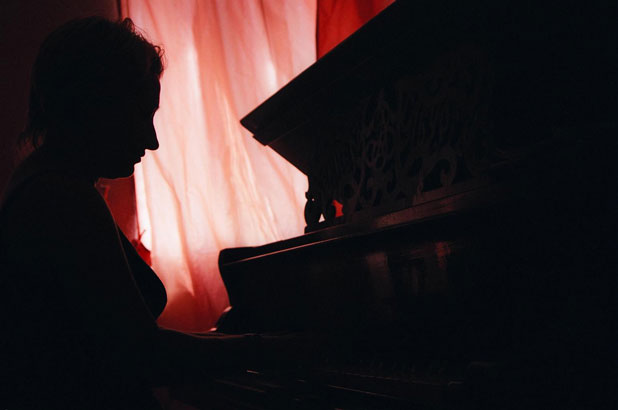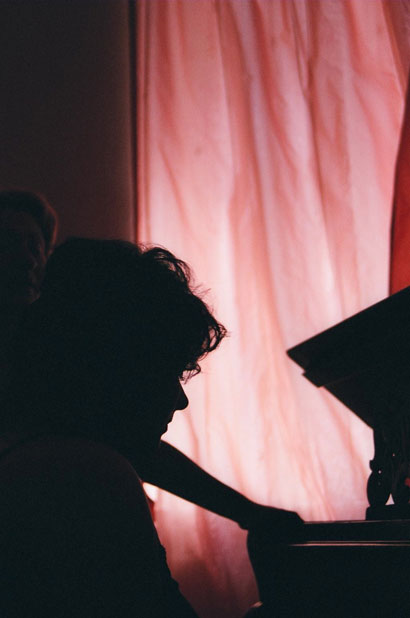Ek’a Barkalaia
and Khatia K’ukhianidze
I had met Khatia once before the summer of 2006, on a previous Village Harmony trip with Carl Linich as one of the leaders. Khatia is Carl’s wife, and we had stopped in her family’s village of Urbnisi. I lived with her, her sons and her parents during my trip. Ek’a is one of her best friends, going back to their university days. Ek’a was also my Georgian language teacher. She teaches English in Vak’e, in the university district; Khatia has since (at the end of August) come to the States to be with Carl in upstate New York, and was preparing for the move whilst I was there.
Ek’a and Khatia have been singing together, as friends, for a very long time. (Both have some formal piano training, which they demonstrated quite a few times, but no vocal training). Together, with Khatia’s mother Eteri, they began singing more traditional songs with Carl when they met him, whilst he was sojourning in Georgia and learning a substantial body of Georgian folk repertoire. A song that they taught him, Sats’qali Babua or “Poor Grandfather”, he had never encountered elsewhere (nor had anyone else I talked to); it was taught to Ek’a by a family friend, and she then taught it to Khatia (they sing it as a two-part song, though on Kavkasia’s (Carl’s American trio) 2006 cd “The Fox and the Lion”, he has arranged it for three voices and chonguri). The style, according to Carl, is characteristic of both Imereti and Guria; there’s nothing to show more specifically where it came from.
Ek’a and Khatia have a deep affection for Georgian city songs, or kalakuri simghera, songs that often date back one or two hundred years but are not considered “folk songs” in the strict sense of the term. Kalakuri simghera often have piano or guitar accompaniment; theirs is a very romantic genre, both in lyrical and musical content, and they adhere strictly to the Western tonal system though employing Georgian lyrics and turns of melodic phrase. I heard Ek’a and Khatia, and at times Eteri, spontaneously sing kalakuri simghera far more often than khalkhuri simghera or “true” folksongs. Yet they were diffident about the songs’ authenticity as folk repertoire, and doubtful of my wishes to record them. Evidently other song collectors who they’d encountered had been looking for the “pure” traditional songs.
I recorded Ek’a and Khatia twice, both times in the kitchen of Khatia’s home (where I was living) when we were finishing up eating together after a Georgian lesson. The first session was on a disc that subsequently sustained a formatting error, and I lost the data. The second time, I recorded more extensively, obtaining lyrics for some of the songs as well, and interviewing the women a little. Khatia generally sings the lower of the two parts, Ek’a the higher. Eteri would often hum along or sing under her breath, but was too shy of being recorded to allow me to capture her voice on the disc. The first song here is their favourite kalakuri simghera, Gazapkhuli (In the Spring). The second is a folksong, Sats'qali Babua (Poor Grandfather), whose origins nobody can discover; a family friend taught it to Ek'a, who taught it to Khatia, then the two of them taught it to Carl. Carl made a three-part arrangement of it with chonguri accompaniment that appears on Kavkasia's 2006 cd The Fox and the Lion; here, the two women sing it alone.

Ek'a at the piano, Khatia's house, July 2006

Khatia at the piano, her house, July 2006